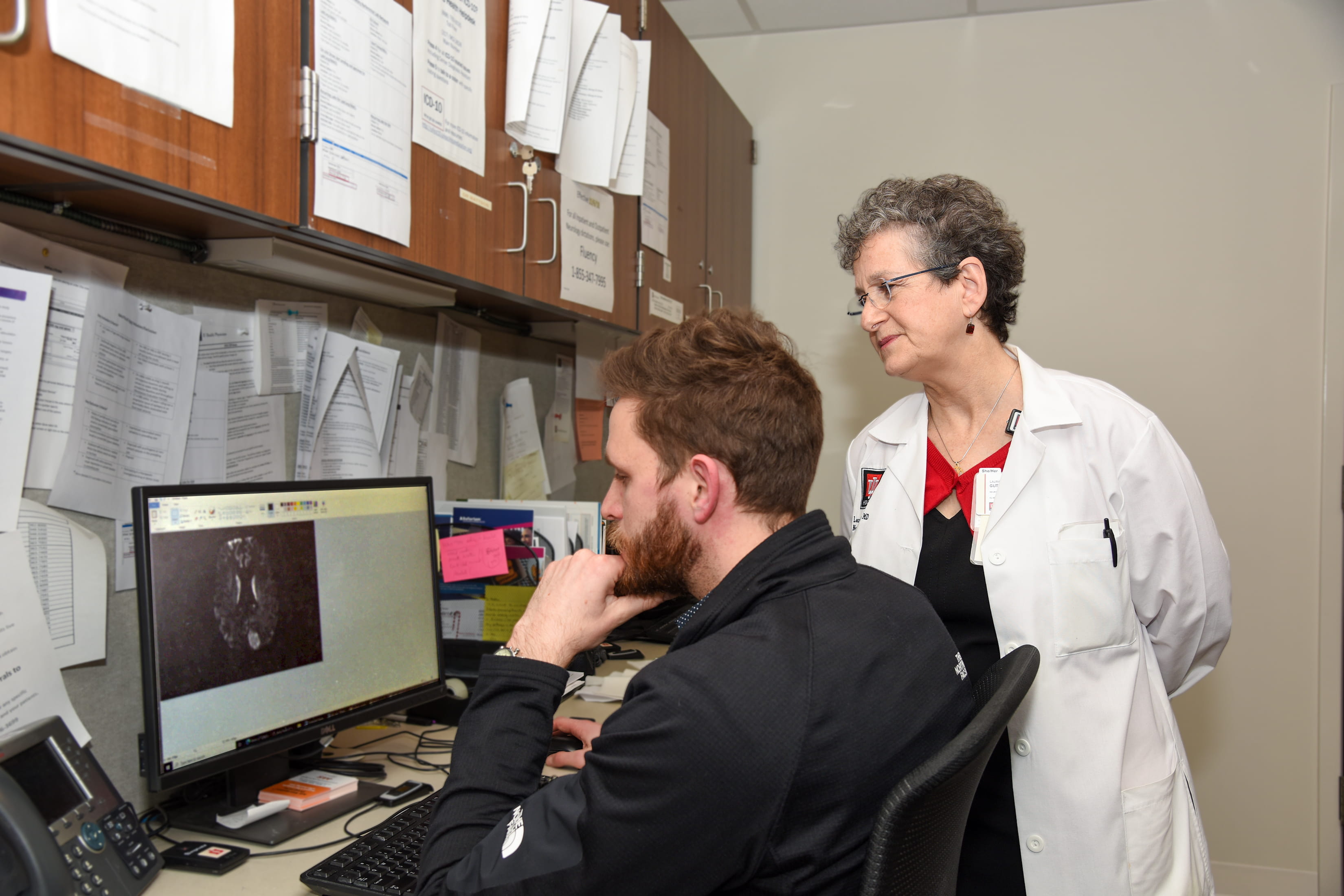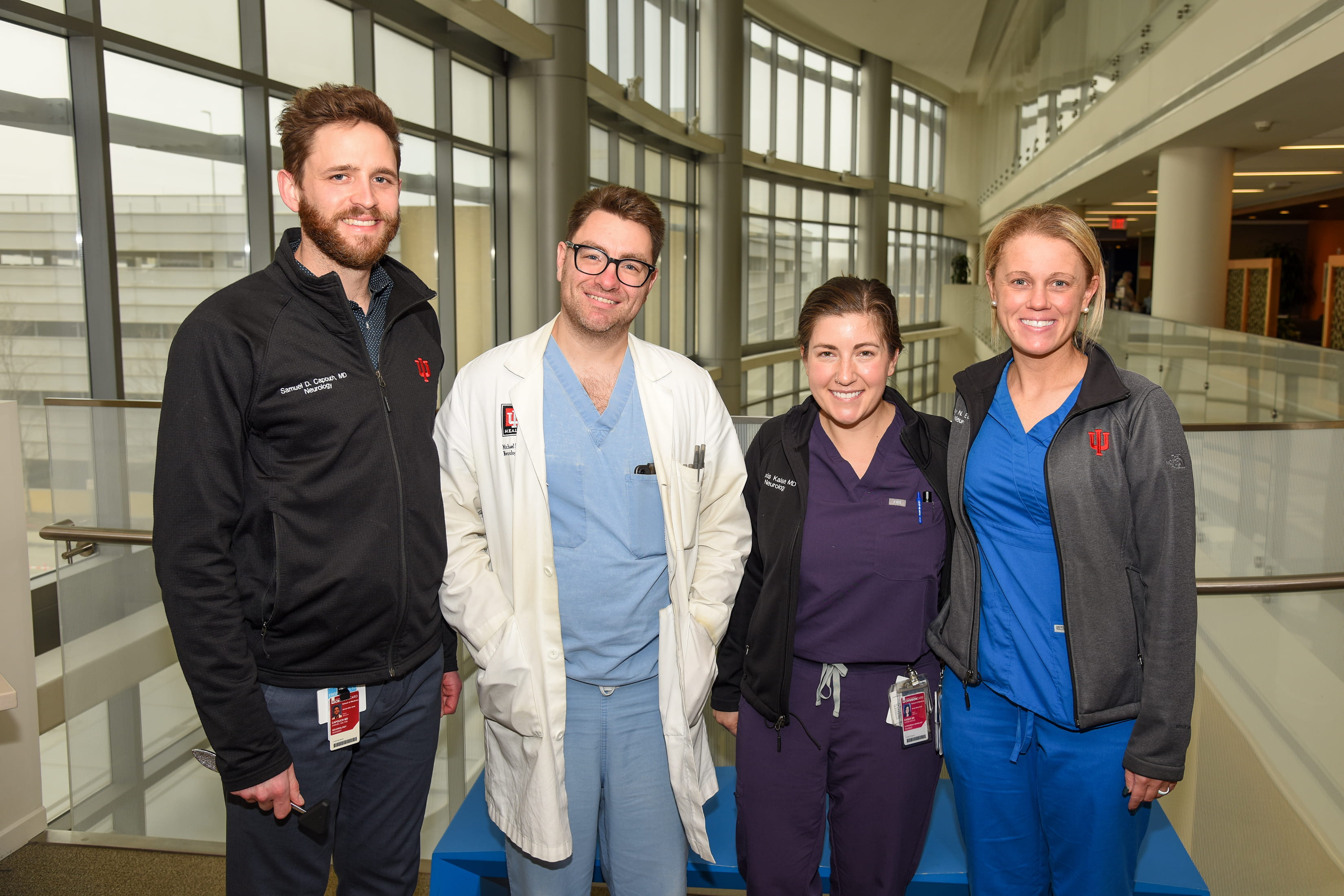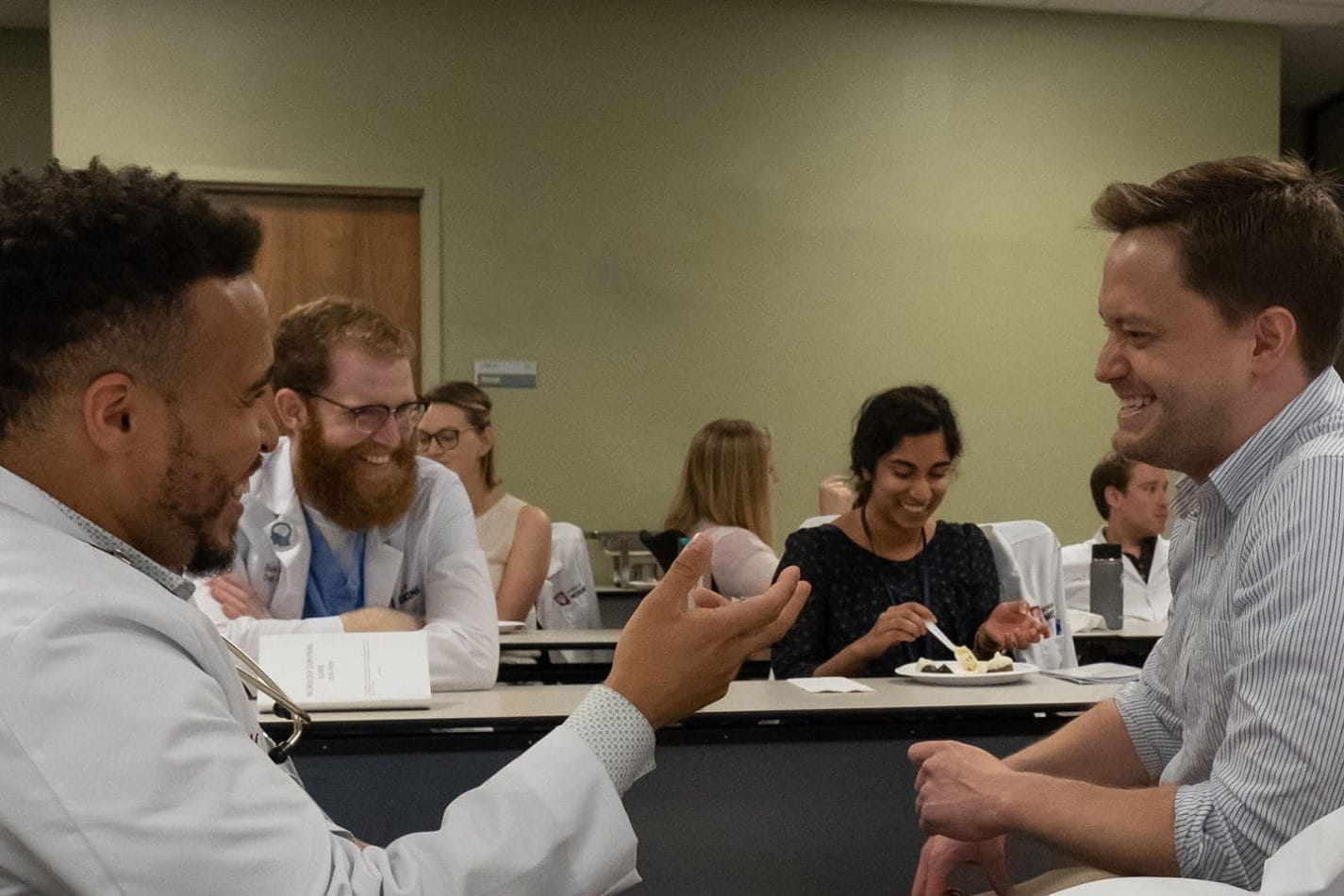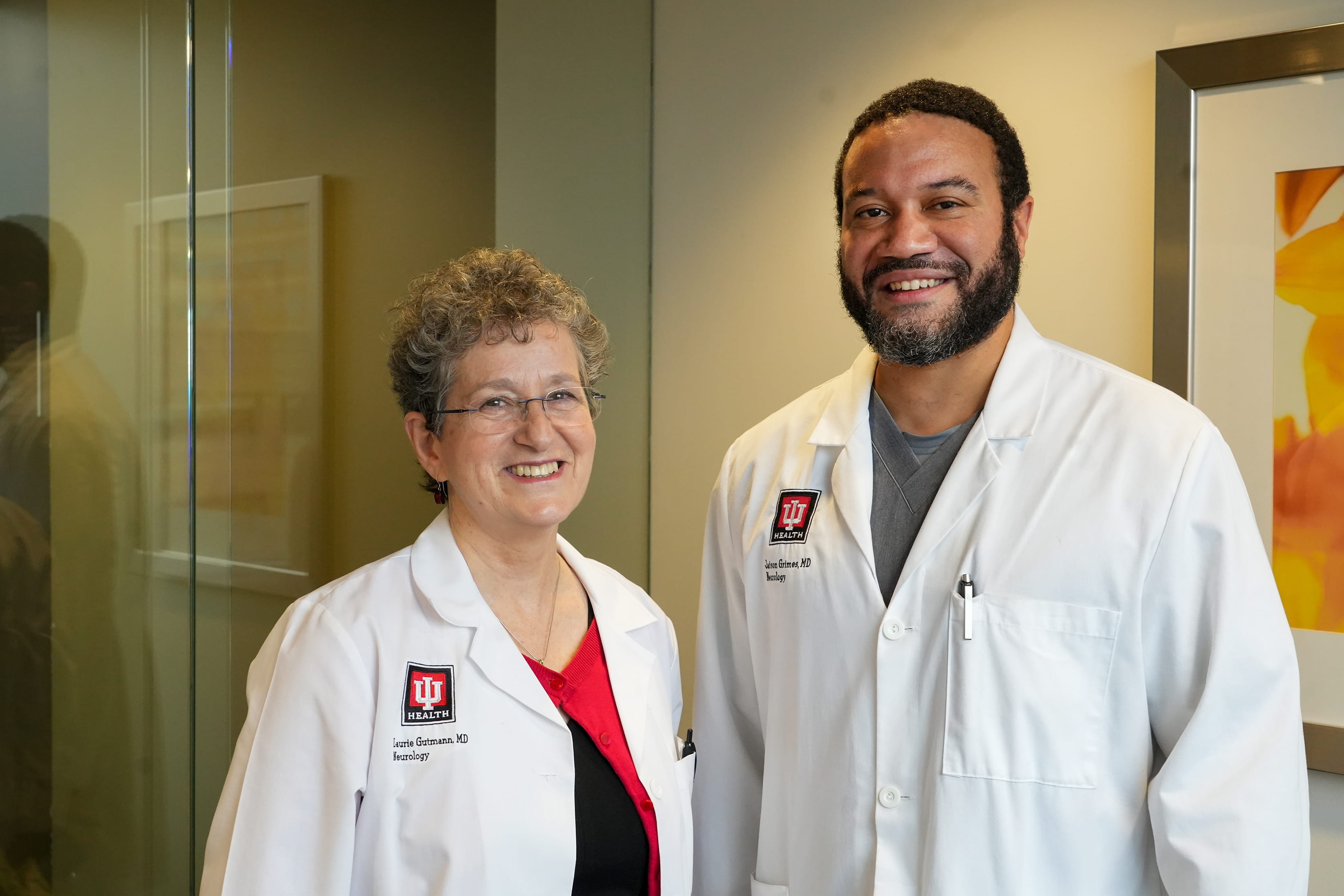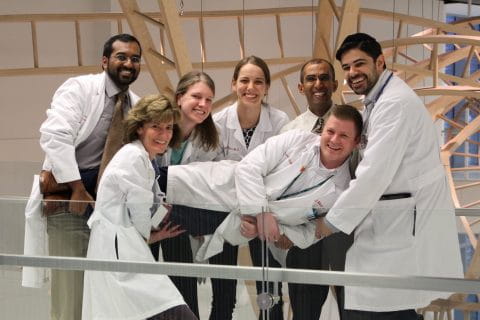The Department of Neurology at Indiana University School of Medicine offers a dynamic and comprehensive three-year Adult Neurology Residency Program that is ACGME-accredited. Ten positions are offered and filled each year. Residents in this program are critical to the program’s curriculum and continued improvement. The program prepares physicians to care for patients and advance care through innovative thinking. Teaching faculty inspire residents to ask questions that ultimately improve clinical care and the educational experience at IU School of Medicine.
The Adult Neurology Residency Program emphasizes hands-on experience in neurology subspecialties during the PGY2 year. This early exposure enables residents to gain practical experience in subspecialty areas that they may pursue further during fellowship training.
